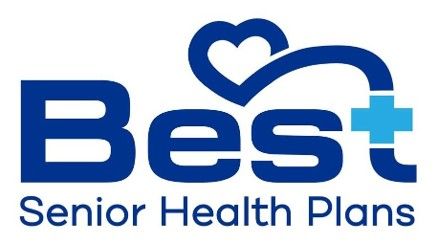Original Medicare
Start with understanding what Medicare covers... and what it doesn't.
Understanding Original Medicare (Parts A & B)
Original Medicare is the federal health insurance program for people aged 65 and older, as well as for some younger individuals with disabilities or certain medical conditions. It consists of Part A (Hospital Insurance) and Part B (Medical Insurance).
Understanding what Original Medicare covers—and more importantly, what it does not—is key to making smart decisions about your health coverage. While Parts A and B form the foundation, most beneficiaries benefit from adding drug coverage and a supplement (Medigap) or Advantage plan to protect themselves financially and ensure you get the care you need.
Speak with us and we can help you evaluate your full range of choices.

What original Medicare Covers
Part A: Hospital Insurance
Part A helps cover inpatient care, including:
- Hospital stays (semi-private room, meals, nursing care, medications)
- Skilled nursing facility care (following a qualifying hospital stay)
- Hospice care
- Home health care (limited, medically necessary services)
Most people don’t pay a premium for Part A if they or their spouse paid Medicare taxes while working.
Part B: Medical Insurance
Part B helps cover outpatient and preventive services, such as:
- Doctor visits (primary care and specialists)
- Outpatient care (diagnostics, lab work, minor surgeries)
- Durable medical equipment (e.g., walkers, oxygen equipment)
- Mental health services
- Preventive services (annual wellness visits, flu shots, cancer screenings)
Part B requires a monthly premium, and you typically pay 20% of Medicare-approved amounts after the deductible is met.
What original Medicare Does Not Cover
Despite its comprehensive nature, Original Medicare does not cover many essential services that older adults may need:
- Prescription drugs – You need to enroll in a separate Part D plan for drug coverage.
- Dental care – Routine cleanings, fillings, dentures, and extractions are not covered.
- Vision care – Eye exams for glasses or contact lenses are not covered, except in specific medical circumstances (e.g., cataract surgery).
- Hearing aids – Exams and hearing aids are not covered.
- Long-term care – Custodial care in nursing homes or assisted living is not included.
- Overseas medical care – Generally not covered outside the U.S., except in limited emergency cases.
Because of these gaps, many people choose to add a Medigap (Supplement) plan or enroll in a Medicare Advantage (Part C) plan for more comprehensive coverage.
5 Common Myths About Original Medicare – Debunked
Myth #1: Medicare Covers All Your Health Costs
Truth: Medicare covers many medical services but not everything. You’re responsible for deductibles, coinsurance, and copayments. Services like dental, vision, hearing, and prescription drugs often require additional plans.
Myth #2: Medicare Will Pay for Long-Term Nursing Home Care
Truth: Medicare only covers short-term skilled nursing care after a hospital stay. It does not cover custodial or long-term care for help with daily activities (e.g., bathing, dressing, eating).
Myth #3: I Don’t Need to Enroll in Part B If I’m Healthy
Truth: If you delay Part B enrollment without other creditable coverage, you could face a permanent late enrollment penalty. Even healthy individuals should consider enrolling to avoid future penalties.
Myth #4: Medicare Works Everywhere in the U.S.
Truth: Original Medicare does work nationwide with any provider that accepts Medicare. However, coverage is generally not available internationally, and some services may be limited by provider availability in certain areas.
Myth #5: I Can Rely on Medicare Alone
Truth: Many beneficiaries find that Original Medicare alone does not meet all their needs. Without supplemental coverage (like Medigap or a Medicare Advantage plan), out-of-pocket costs can add up quickly.
